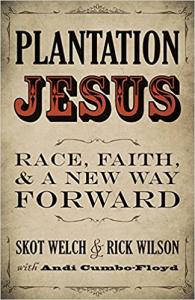The church-at-large has been far too silent for far too long on the subject of sexual abuse. It’s what happens when church leadership, even in theoretically egalitarian denominations, is dominated by men. This is why I’m grateful for voices like those of Beth Moore, who in this article, seeks to explore one possible reason for our silence on this subject. I applaud Moore for speaking on this because I know it is quite personal to her and, in many ways, it runs contrary to the dominant (read: male) voices in her Evangelical circles.
That praise in place, I think there is a blind-spot in this article that minimizes Moore’s perspective in a time when we need it maximized. Moore asks, “I wonder if much of our silence, our squirming, and palpable discomfort, regarding the exposure of sexual abuses, is wrapped up in our guilt, shame or brokenness over our own sexual sins. After all, who among us hasn’t committed sexual sin whether in imagination or action?” This question functions as a sort of thesis sentence for the article. She’s asking us to consider if it’s our own sexual missteps that inhibit our ability to call out sexual assault.
The problem is, these seem to be two categorically different issues. Sexual abuse has no relationship to individual, privatized sexual decisions. By bringing them together, we see that Moore is still working with some of the individualistic leftovers that still plague the Evangelical discussion of sexual assault to this day.
Popularized in Evangelical circles in the 1990s, Moore is firmly embedded in Evangelical culture, particularly in its most conservative forms (Southern Baptists). Evangelical Christians tend to think about sin, particularly sexual sin, in more individualistic ways (which can be good and bad). Of course, Moore is bright and is fully capable of thinking her way out of cultural baggage. However, by understanding her long-time context, we can see here why she would default to speaking to this subject in a way that privatizes/personalizes it (“Do we ignore a church leader’s sexual harassment because we slept with people in college?”). My claim, however, is that this is really a non-issue. How is someone’s history of consensual sex (even if outside the bounds of the church’s teachings) connected to the rampant, culture-wide violence of sexual assault? This is like asking, “Do I overlook the systemic greed that caused the housing market crash in 2008 because I once bought a pair of shoes I didn’t need?”What needs to be addressed in this cultural conversation has nothing to do with individual sexual history, and should focus more on why we have a culture that systematically inhibits victims from telling their truth. This is the kind of thing Paul is getting at in Romans 1, where he ties group injustices – including sexual injustices – to larger systems of idolatry. For Paul, the problem is not just individuals sinning individually. Rather, sin is a system that leads to the degradation of our bodies, a system that protects abusers (“approves of them”), and leads to group destruction. Yes, of course, individuals are involved. But individuals are held captive to a larger system. And that is where my critique of Moore lies.
In straining at the gnat of individual sin, Moore misses the camel of male privilege that has blinded the church to how truly entrenched this problem is. She misses the opportunity to unmask the system of patriarchy and male privilege. For many of her readers, her authoritative voice will be the first time they hear such a thing from a trusted, biblically-grounded person. Many of them survive in church cultures where abuse is so normalized they don’t even call it abuse, they call it “biblical.” A quick Google search reveals hundreds of women testifying to their churches giving them theological imperatives to submit to their abusive husbands. What God-loving woman would want to go against something her church leaders have deemed biblical? The entire system seems set up to foster abuse. It is, therefore, not just a matter of individual sexual sin or individual motivation for covering up sexual abuse.
Thus, in our missing the point, in our default refusal to believe women, it has taken a movement outside the church (#MeToo)to prophetically critique a problem inside the church (#ChurchToo).
I’m Wesleyan because I believe we offer a unique perspective here, albeit one that looks better in theory than anything we’ve managed to accomplish on the ground. For even within Wesleyan movements, women are sidelined, assumed to be inferior leaders/speakers, etc., thus limiting the appointments they can access, thereby silencing their influence, denying their stories, and limiting the structural changes women can bring about to make church and society safer for future generations of young women (and men) . Moore is right, we need a concerted, group effort that speaks to the issue and tells predators that the church is not a safe place for them. But she offers no real ideas on how to do this that go beyond her assumption that sexual sin and shame lie behind our silence. Sermons from the pulpit are a great and necessary start, but that doesn’t change anything structurally, and the pastor cannot be the only voice pushing for this.
What would need to happen for structural change to take place?
Something Moore is possibly unwilling to say (or at least unwilling to say publicly): A radical commitment to women in leadership in churches. A radical overhaul of how we approach gendered situations wherein men are the primary judges of truth and accountability. A radical commitment to having women tell their stories (when/if they’re ready). A radical commitment to re-evaluate male-centeredness of many churches, seeking concrete ways to ensure that future generations of churches have women-as-women ministers, leaders, visioneers, truth-tellers, and prophets. We need women helping us develop safe sanctuaries policies, and we need men and women brave enough to challenge their pastors and leaders about apathy toward protecting the most vulnerable in our churches. In other words, even in egalitarian churches, we have a deep need to rethink our processes and align them with what we say we already believe when we confess that women are equal to men in every way.
I don’t know. Maybe Moore would agree with everything I just wrote. Maybe she hates patriarchy like I do. If so, I think now is a good time to start saying it. My friend Sara Stanton tells me her Twitter feed is going in the right direction. I hope it is. We need voices like hers.
Tom Fuerst is the Associate Teaching Pastor at Christ United Methodist Church in Memphis, Tennessee and a graduate student in Communication at the University of Memphis. He is also the author of Underdogs and Outsiders: A Bible Study on the Untold Stories of Advent.












